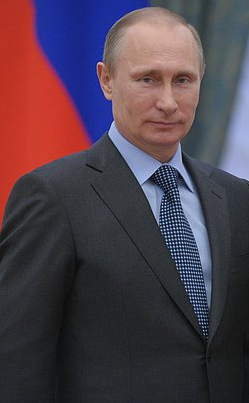 We all agree that nothing ruins a workplace culture like a jerk co-worker or a rude manager. But how do you uncover those characteristics in your pre-employment interviews? Even Vladimir Putin can seem charming if you only ask questions like What are your career goals? What motivates you? and What are you looking for in a job? before making an offer.
We all agree that nothing ruins a workplace culture like a jerk co-worker or a rude manager. But how do you uncover those characteristics in your pre-employment interviews? Even Vladimir Putin can seem charming if you only ask questions like What are your career goals? What motivates you? and What are you looking for in a job? before making an offer.
Your hiring process needs to occasionally challenge the candidate to see how they react to pressure. The best way to do this is to share criticisms with the candidate so you can experience firsthand — through your own eyes and your own ears — how they respond.
Before I expand upon that concept, I want to make sure my advice is balanced. Yes, the candidate should be challenged, but you must also achieve these five emotional outcomes during your interview process:
- The candidate feels your company is professional.
- The candidate feels all their questions were answered.
- The candidate was happy to interview with you.
- The candidate is enthused about the job and your company.
- The candidate’s expectations were managed properly. (Candidates you want to advance in your interview process should feel that you are excited to have them as potential hires. Candidates you want to eliminate from your process should not mistakenly feel that they’ve been guaranteed another interview or a job.)
To achieve those outcomes while challenging the candidate, your tone can’t be accusatory, condescending, or emotionally charged. The tone of your interview should be more of a conversation, not an interrogation. Examples: You said earlier in our interview that you’re OK with criticism. Can I give you some? and I want to share a criticism with you. I hope I don’t come off as harsh here — I’m just trying to make sure this is a right fit for you and us. Can I share with you an area that concerns me?
Next, be direct and succinct so the candidate is clear about the criticism, then observe their behavior. I’d like to share two anecdotes of how candidates reacted when challenged.
The first story is about a sales candidate who happened to be a 6’ 5”, 250-pound former college athlete we’ll call Mike. You’ll understand later why I mention Mike’s imposing appearance. Mike had answered our initial questions in laid-back fashion such as I get along with all my co-workers and My manager and I get along really well.
Wanting to expose Mike to an aversion, our hiring manager said, “You said you were OK with criticism. So can I share one with you?” The hiring manager pointed out several instances during the interview when Mike strayed from the path of the conversation and provided unnecessary details. Basically, he told Mike he was a long talker, an issue which sales reps need to correct in order to be effective. As the hiring manager delivered this message, Mike’s smile became a scowl and his face turned beet red. He leaned forward on the conference room table and curled his hands into fists. His loud reaction included such comments as Who do you think you are? and I’ve never been so insulted in my life!
The second story is about Darrell who was applying for the Operations Manager position in our Pittsburgh office. Darrell was highly accomplished and filled with confidence, which sometimes presented as lacking humility. So I said to him, There’s a lot we like about you and would make you a great fit here. Can I share with you my biggest concern? Darrell said yes, so I let him know that everyone in our interview process who interacted with him — including me — noted his larger-than-normal ego. We were concerned if we hired him, he might be self-centered, not willing to admit personal shortcomings, or give credit where it’s due.
He was surprised but didn’t get defensive or combative. He was inquisitive, asking for examples that would lead us to have that concern. I referred to my interview notes and read back to him in succession portions of some of his answers that lacked humility. Darrell smiled and said something to the effect of, “I see where you’re coming from. I’m glad you pointed that out, because I don’t want to make people feel that way. I’ll keep an eye on that. And if you see me do that again, please point it out to me.”
As you might have guessed, we did not hire Mike and offered a position to Darrell, who has been a wonderful leader, manager, and co-worker. He has truly enhanced the culture of our Pittsburgh office, and I’m not surprised one bit. He rose to the challenge in the interview process and has exhibited that same behavior on the job.